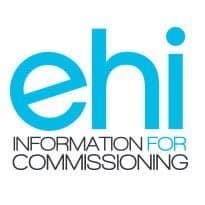EHealth Insider is to run a new event, Information for Commissioning, in London in May next year.
The conference and exhibition will be on 15 May at the new headquarters of the Royal College of General Practitioners.
It will focus on the role that IT and the effective management and analysis of information can play in supporting the government’s ambitious commissioning agenda.
GP-led clinical commissioning groups are being set up now and will take on around 60% of the NHS commissioning budget at the start of the next financial year.
Initially, they will be supported by NHS commissioning support services. But the government has made it clear that in the medium to long term it expects a vibrant market to develop in commissioning support, including IT and business intelligence.
EHI director Linda Davidson said: “There is a lot of activity in commissioning at the moment, but there has been a lack of focus on its information aspects.
“These will be vital to getting the new structures working as envisaged by ministers and the people working so hard to set up these new organisations.
“So we think there is a need for an event that really focuses on the contribution that IT and information analysis can make to this unfolding agenda in healthcare.”
The new event will be aimed at GPs – who have already made great strides in taking their practices paperless – at commissioners in CCGs and at people working in CSSs and other support organisations.
It should also be relevant to hospital doctors and nurses serving on CCGs, who will see CCG data demands impact on provider organisations, and at people working in local authorities, who will be taking on new public health and population planning roles.
Davidson pointed out that although existing commissioning organisations have made increasing use of IT, they have tended to focus on the more traditional aspects of commissioning, such as invoice validation and contract monitoring.
While these will continue to be of interest to CCGs, they will need to get into more transformational commissioning to meet the demands being placed on them.
This will drive demand for both new analysis techniques – such as risk stratification – and new ways of delivering services – such as telehealth.
“CCGs are facing a huge task just to finish getting authorised and to get going over the next few months, but after that they are going to be looking for new solutions and new ways of working from CSSs and other providers,” Davidson said.
“They are not just going to be looking to business as usual with a new name on the old primary care trust door. Against this backdrop an IT conference focused on the IT needs of CCGs, CSSs and suppliers would seem to be very timely.”

